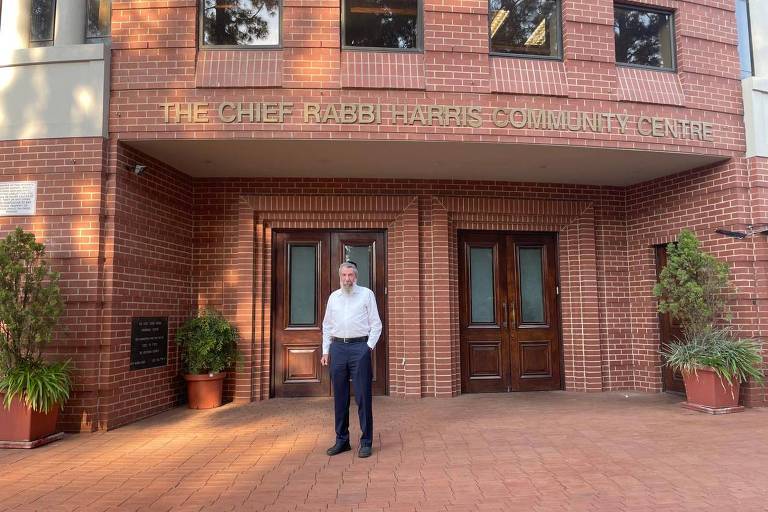Since the South African government took the global lead in criticizing Israel, the Jewish community in the country has reported an increase in antisemitic incidents, and daily life has changed. At the end of last year, Pretoria filed a case at the International Court of Justice in The Hague (Netherlands), accusing Tel Aviv of genocide against Palestinians in the Gaza Strip.
Local entities state that the number of incidents against Jews has increased by 700% since then, but they do not provide absolute numbers. It is estimated that there are two to three such episodes per day. The vast majority are online offenses, although there have been isolated cases of minor physical assaults.
Jews in Johannesburg told Folha that it is still possible to walk with a kippah on the streets, but the feeling is one of utmost caution. Buildings linked to the local community have received enhanced security.
"The longer the war lasts, the more dangerous it becomes for us," says David Saks, 57, associate director of the South African Jewish Board of Deputies, the main organization representing the community in the country. Today, it has 50,000 members, less than half of the peak in the 1970s, with 120,000—a number similar to the estimated size of the Jewish community in Brazil.
South Africans also withdrew their diplomats from the embassy in Tel Aviv, while political leaders, including President Cyril Ramaphosa, made statements in support of a Palestine "from the river to the sea." The phrase advocates that Palestinian territory officially extends from the Jordan River, the border between the West Bank and Jordan, to the Mediterranean Sea—today, this area is largely Israel.
